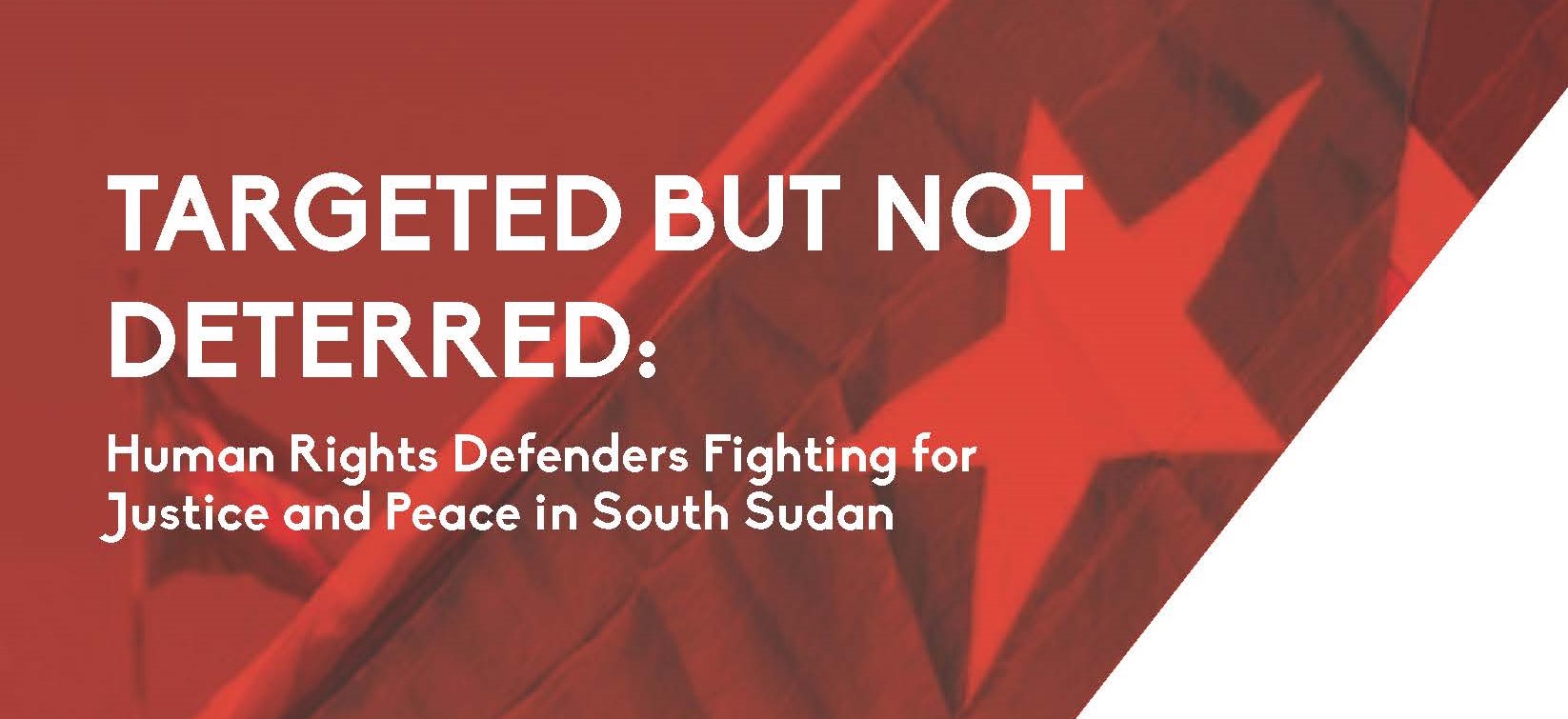In a new report published today, DefendDefenders analyses the situation of human rights defenders (HRDs) and civil society in South Sudan after the signature of the 2018 Revitalised Peace Agreement and formation, in early 2020, of a national unity government. Nation-wide conflict has ceased but fighting continues in several areas of the country and intercommunal tensions are rising. Furthermore, as the report shows, civic space is under attack. HRDs and independent actors have been operating under increasing pressure.
“This report comes at a critical juncture for South Sudan’s civil society, as authorities step up their crackdown on HRDs and other independent actors,” said Hassan Shire, Executive Director, DefendDefenders. “South Sudan’s partners should say in unison that these actors need protection, support, and recognition for their efforts towards justice and peace.”
“Targeted but Not Deterred” shows clear patterns of repression and South Sudanese HRDs’ courage and resilience. The report, which is the culmination of monitoring efforts, South Sudan-focused advocacy, desk research, and field interviews conducted in February 2020, documents how civic space in the country has shrunk. Abuses are facilitated by general insecurity and a pervasive culture of intimidation, abuse of power, and impunity. The report identifies the National Security Service (NSS) as the main, but not the only, perpetrator of abuses.
Intimidation, fear and self-censorship have been mounting, in particular for those who monitor, work, and report on issues deemed sensitive, which include human rights, lack of accountability, governance, and implementation of the provisions of the peace agreement, including transitional security arrangements and transitional justice institutions.
HRDs continue their work, often in difficult conditions, because they know that no lasting peace can be achieved without justice. Without accountability for the grave violations committed in the country since its independence, respect for the human rights of its citizens, and strong institutions based on the rule of law, South Sudan will risk falling back into conflict.
The report presents the underlying challenges facing HRDs and a needs assessment. It makes concrete recommendations to address these challenges. It also formulates a series of recommendations, among which the need for national, regional, and international actors to prioritise accountability and operationalise transitional justice mechanisms, including the Hybrid Court for South Sudan. “Targeted but Not Deterred” is made public as DefendDefenders advocates for the renewal of the mandate of the Commission on Human Rights in South Sudan at the UN Human Rights council’s 43rd session (suspended since 13 March 2020) and prepares for the 66th ordinary session of the African Commission on Human and Peoples’ Rights.

